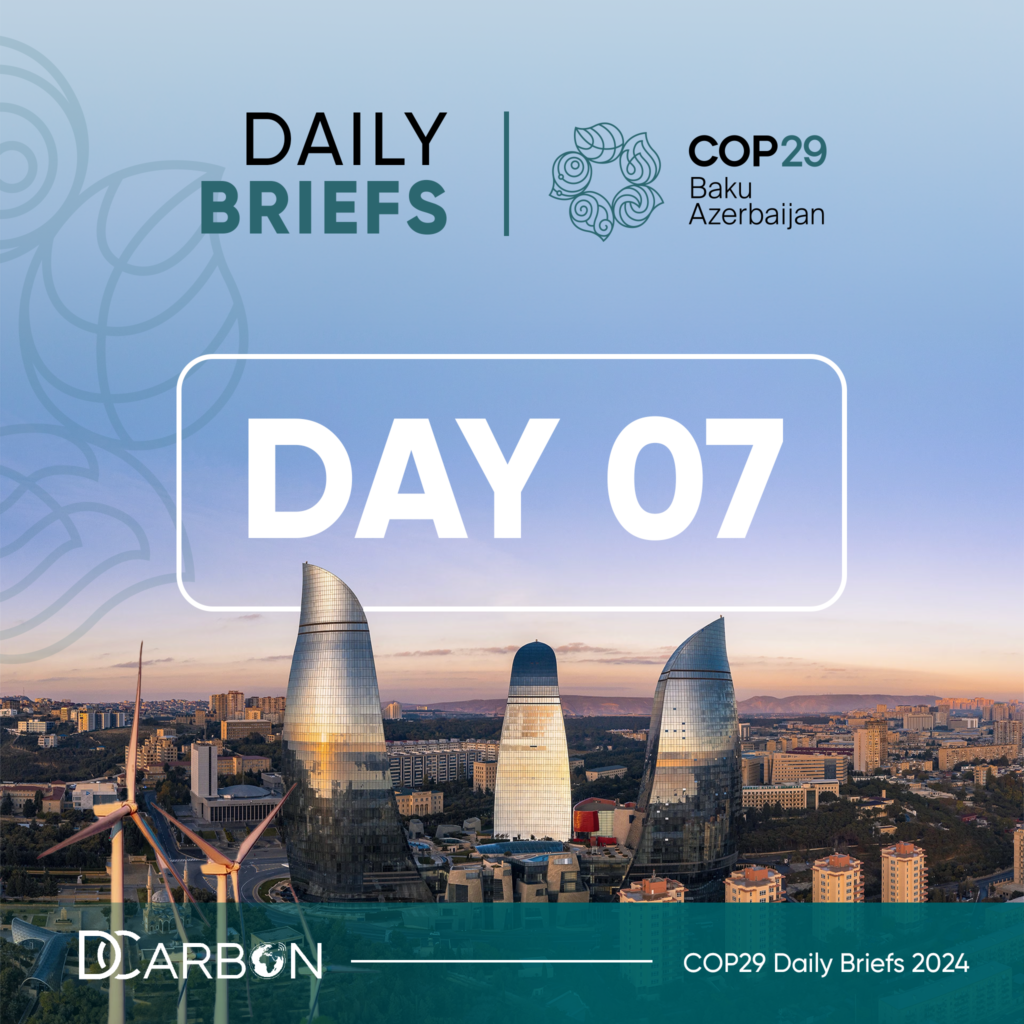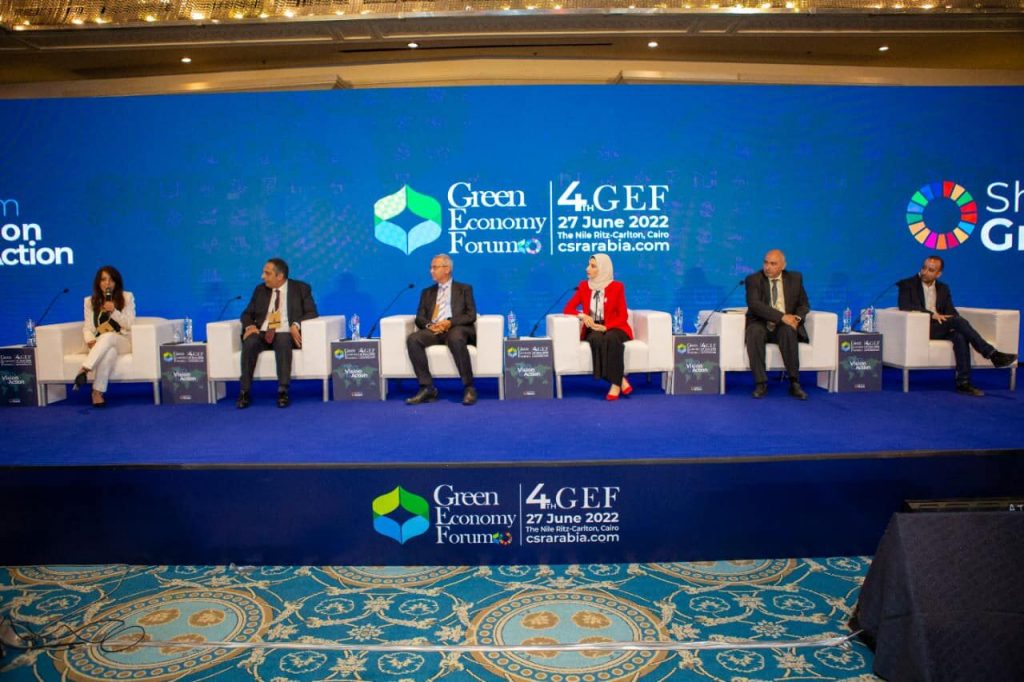Blue Zone – Day 8
Caspian Sea Facing Severe Environmental Threats
Deputy Minister of Ecology and Natural Resources, Umayra Taghiyeva, discussed the significant challenges the Caspian Sea is undergoing due to climate change at COP29 in Baku, Azerbaijan. She explained that despite the fact that the Caspian Sea is known for its rich biodiversity, its ecosystem is threatened by climate change, such as: extreme weather, frequent natural disasters, and changing biodiversity. She elaborated that over the past 30 years, the sea level has dropped by nearly 2.5 meters, with annual declines of 20-30 cm, creating serious environmental and economic risks. Taghiyeva also mentioned a UNEP report that calls for coordinated research and cross-border efforts to address the impacts of sea-level changes.
Restoring Absheron Lakes for Climate Resilience & Sustainable Water Management
A panel titled “Restoring Absheron Lakes: A Pathway to Climate Resilience and Sustainable Water Management” was held at Azerbaijan’s national pavilion during COP 29. Officials from the Asian Development Bank (ADB), World Bank, Witteveen+Bos, and other stakeholders were amongst the key participants. The discussion focused on garnering international support for Azerbaijan’s projects that aimed at restoring the Absheron Lakes and their contribution to global environmental goals. The second phase of Boyukshor Lake restoration and plans for Zigh Lake were shared. These efforts, in line with Baku’s General Plan through 2040, were seen as vital to the city’s sustainability and ecological health. Experts reiterated on the importance of these projects for achieving the United Nations’ Sustainable Development Goals (SDGs) and improving urban life.
Investing in Education for Climate Resilience
Leyla Aliyeva, Vice-President of the Heydar Aliyev Foundation and founder of IDEA (International Dialogue for Environmental Action), spoke at the event “Investing in Education for Climate Resilience: Strengthening Early Development and Environmental Literacy.” The event aimed at empowering youth through environmental education and was co-organized by IDEA and the International Union for Conservation of Nature (IUCN). Aliyeva highlighted IDEA’s initiatives that engage young people in climate action and environmental responsibility, such as eco-camps and awareness campaigns. She also stressed the importance of international cooperation in fostering a more environmentally conscious generation. Other speakers included Azerbaijan’s Minister of Science and Education Emin Amrullayev and IUCN Director General Grethel Aguilar, who stressed the need for environmental literacy and global solidarity to build a sustainable future.
Azerbaijan’s Roadmap for Energy Efficiency
Azerbaijan launched its Roadmap for Energy Efficiency Policy in collaboration with the International Energy Agency (IEA). Deputy Minister of Energy Orkhan Zeynalov highlighted Azerbaijan’s commitment to combating climate change and transitioning to a green economy. He stressed efforts to increase renewable energy and improve energy efficiency, supported by new regulations and strategic plans. The roadmap outlines how energy efficiency in multi-apartment buildings could be improved by up to 50% and was developed under the EU4Energy program. This could save 4.2 billion cubic meters of gas annually, cut carbon emissions by 10 million tons, and create 125,000 jobs. The event included discussions on future energy efficiency priorities and challenges.
Strengthening Global Cooperation on Climate-Induced Migration
A high-level panel on “Strengthening Global Cooperation on Integrated Solutions for Human Mobility in the Context of Climate Change” addressed the growing issue of climate-induced migration and was organized by Azerbaijan’s State Migration Service and the International Organization for Migration (IOM) in the Blue Zone. Vusal Huseynov, Chief of Azerbaijan’s State Migration Service, stressed the importance of cooperation and strategies to manage migration caused by climate change. He referred to Uzbekistan’s Regional Silk Road Declaration on Human Migration as a promising approach. IOM’s Ugochi Daniels shared alarming statistics from the IOM World Migration Report, revealing that by 2022, over 71 million persons were displaced due to climate change, with projections reaching 260 million by 2050. Daniels added that timely climate action could reduce these numbers by 80%.
Radiation and Climate Change: New Challenges
Azerbaijan hosted an event titled “Radiation and Climate Change: New Challenges”, organized by the State Agency for Nuclear and Radiological Activity Regulation, brining together experts from various Azerbaijani ministries and the International Atomic Energy Agency (IAEA). Nijat Aliyev, head of the State Agency, discussed Azerbaijan’s measures for ensuring nuclear and radiological safety, including improvements in infrastructure and emergency preparedness. IAEA’s Juan Wei, Jalal Naghiyev from the Agency for Innovation and Digital Development, and Seymur Safarli from the Ministry of Agriculture also addressed the intersection of nuclear activities and climate change.
Green Zone – Day 8
COP29 Explores Human Development for Climate Resilience
Human Development and Education Day at COP29 reiterated on investing in people for advancing climate action and resilience in a panel discussion. The sessions stressed the role of education, health, and youth empowerment as essential pillars for sustainable development to counter global climate challenges.
Education as a Tool for Climate Resilience
A high-level panel titled “Climate Education for a Sustainable Future” brought together experts, educators, and policymakers to discuss integrating climate science into global curricula. Speakers stressed that innovative education programs that equip students with the knowledge and skills that help to thwart climate change. The panel called for international collaboration to ensure inclusive access to quality education, particularly in vulnerable communities.
Youth Leadership in Climate Action
“Building Climate Resilient Futures: Empowering Youth” was the title of an event that celebrated young leaders as agents of change in COP29. The event was organized by UNICEF in partnership with global youth networks and showcased youth-led projects that tackles issues such as renewable energy solutions and reforestation campaigns. The event stressed the the need for platforms that enable youth participation in policy-making and climate innovation.
Health and Climate Resilience
A session titled “Healthy Planet, Healthy People” disused the relevance of public health and climate change. Speakers from WHO and other global health organizations presented initiatives addressing climate-related health risks, including heatwaves, air pollution, and disease outbreaks. They stressed the importance of strengthening healthcare systems and ensuring equitable access to climate-resilient healthcare services.
Baku Initiative on Human Development for Climate Action
Baku Initiative on Human Development for Climate Action, aimed at fostering partnerships among governments, NGOs, and the private sector to align investments in education, health, and employment with climate goals was launched during COP29. The initiative demonstrated a commitment to empowering communities while addressing systemic barriers to human development. The discussions stressed that addressing climate change is not just about technology and infrastructure but rather on building a society that equipped with the knowledge, skills, and the resilience needed to adapt and thrive in a changing world.
References:
https://en.trend.az/business/green-economy/3971833.html
https://www.azerbaycan24.com/en/event-on-radiation-and-climate-change-new-challenges-held-at-cop29/
https://azertag.az/en/xeber/cop29_discussions_on_climate_resilient_agriculture_held-3289568





